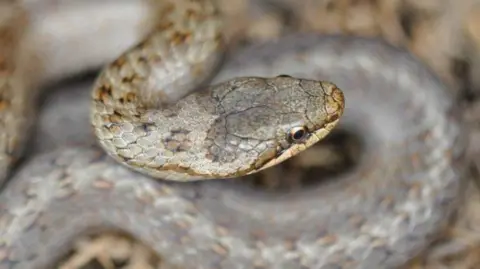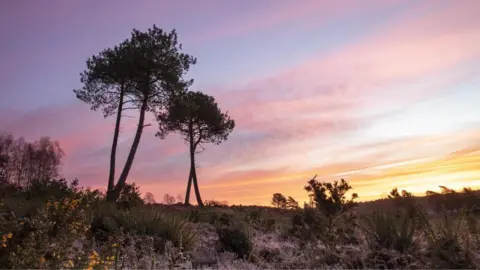Rare heathland species to benefit from restoration
 PA Media
PA MediaA rare habitat that is home to reptiles and ground-nesting birds in Dorset is to be restored in a two-year, £1.2m project.
Dorset Council is removing hundreds of invasive pine trees from Avon Heath Country Park to help rejuvenate the heathland.
The 210-hectare site is home to all of Britain's native reptile species, including the elusive smooth snake, along with birds including nightjar and woodlark.
Trees, scrub and other invasive species such as Rhododendron will be removed to help reverse the habitat loss.
 Dorset Council
Dorset CouncilDorset is home to 2.5% of the world's remaining lowland heathland and the Site of Special Scientific Interest (SSSI), near St Leonards, is internationally recognised for the increasingly scarce habitat.
But coniferous trees, originally planted for timber, have self-seeded and are blocking out sunlight essential for heather growth.
Council leader Nick Ireland said the scheme was "crucial for recovering nature".
"As custodians of a significant portion of the world's remaining lowland heathland, we have a duty to do everything we can to protect this unique habitat for the future.
"And while removing trees during a climate emergency may seem counter-intuitive, heathlands play an important role in tackling climate change too.
"Their soils are excellent at absorbing carbon from our atmosphere and locking it away permanently."
The project is being funded by the Department for Environment, Food and Rural Affairs (Defra).
You can follow BBC Dorset on Facebook, X (Twitter), or Instagram.
